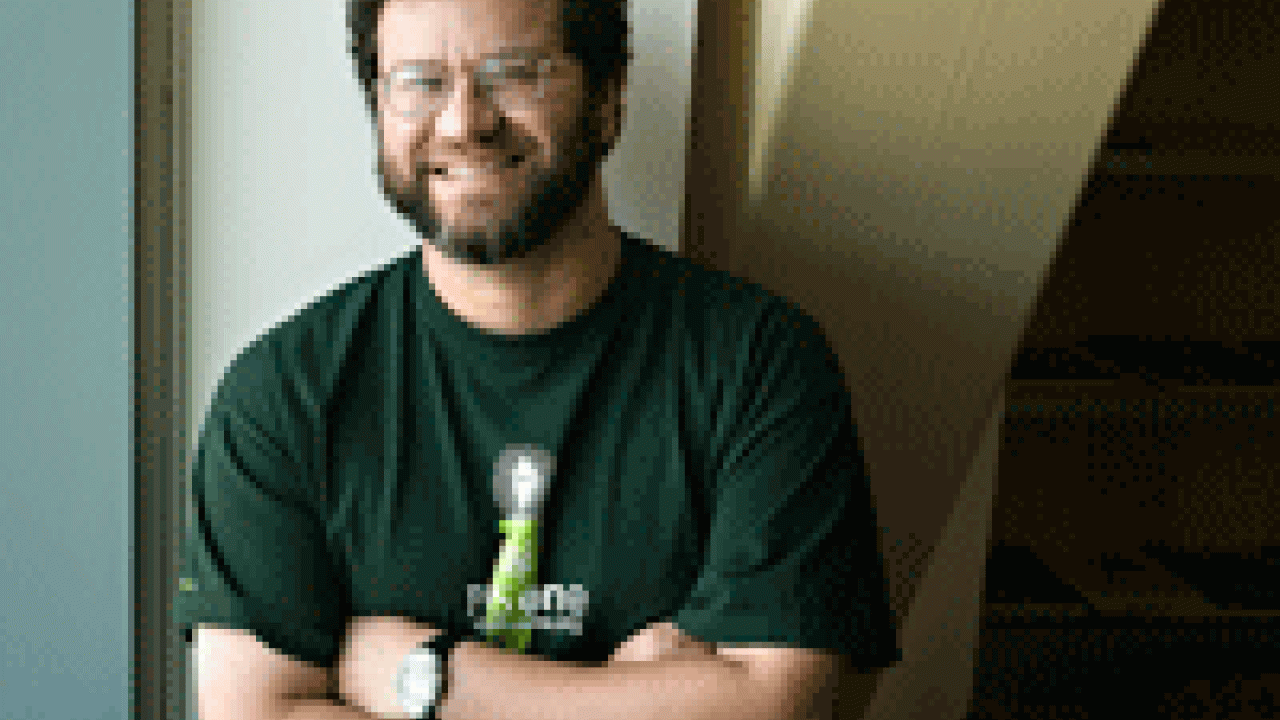Recent developments have advanced the trend towards "open access" publishing. Beginning this month, NIH-funded researchers must deposit copies of their papers in a central archive, PubMed Central, where they will be freely accessible to the public. Faculty at Harvard University recently voted to adopt an open access policy. And the high-energy physics community is considering a proposal to change how journals in the field are financed, and move them to open access.
Most journals require that when the paper is accepted for publication, the authors transfer the copyright to the journal, which charges fees or subscriptions for access to readers and libraries. In open access publishing, in contrast, published papers are freely available to anyone who wants to read them.
"The point of open access is to have material freely and widely available to the public," said Jonathan Eisen, professor at the UC Davis Genome Center and academic editor-in-chief of the journal Public Library of Science (PLoS) Biology. But publishers — including both for-profit companies and scientific societies that derive significant revenue from journal subscriptions — worry that open access will undermine their business model, and affect scientific publishing.
Eisen became an evangelist for open access after a family medical crisis sent him hunting for clinical research papers, trying to make an informed decision on short notice. At the time, Eisen was working at The Institute for Genomic Research in Rockville, Md. The Institute's own library was small and limited. The papers Eisen was trying to track down were archived on several different web sites, each requiring a fee or subscription to read.
"Here was all this research I'd paid for with tax dollars, and I couldn't get at any publications," Eisen said. He vowed that, to the extent he had control, he would publish his work only in open access journals.
As of April 7, journal articles arising from NIH funds that are accepted for publication must be placed in PubMed Central, which will make them available to the public within 12 months.
Some journals will automatically transfer papers to the archive; others, including major publishers such as Elsevier and Blackwell, will do so on request. Researchers may also submit papers directly to the archive.
Congress wrote the mandate into federal law last year. The UC Davis library has prepared a handout for researchers on how to comply with the mandate, including sample language to include with publication agreements.
In February, the Faculty of Arts and Sciences at Harvard University voted to give the university a license to make their publications widely available, as long as they are not sold for profit.
The UC Academic Senate's University Committee on Library and Scholarly Communication (UCOLASC) last year considered a similar scheme, said Andrew Waldron, a mathematics professor who represents UC Davis on the committee. The draft policy was circulated for review, but failed to make progress.
"There were two types of comments," said Ben Crow, a professor of sociology at UC Santa Cruz who chairs UCOLASC. Some faculty objected to a mandatory system, preferring a voluntary, "opt-in" model. UC's California Digital Library already operates the voluntary eScholarship repository, although this does not currently meet the requirements of the NIH mandate.
Others found the detailed proposal overly bureaucratic.
"Overwhelmingly, faculty like the principle of getting research findings out early and as widely as possible, but they're wary of bureaucracy," Crow said.
Crow said that a new proposal is being prepared for discussion that, like the Harvard resolution, would focus first on a declaration of principles, then work out the details of implementation. That proposal could be ready for discussion early in the next academic year, he said.
Physicists and mathematicians have long circulated pre-publication versions of their papers, or preprints, among themselves. Since the early 1990s, they have posted their preprints to arXiv.org, where they are freely available. Researchers typically post a preprint of the paper at the same time they submit it to a journal for peer review. As the paper is amended, the preprint on arXiv.org is updated until the paper is published. The Nature Publishing Group recently started a similar online preprint service, Nature Precedings, for papers in other fields.
In practice, physics and math journals do not object to preprints appearing on arXiv.org, even when they hold the copyright to the final, published paper, Waldron said.
Because of the wide circulation of physics and math preprints through arXiv.org, the main function of journals in these areas is to conduct peer review that validates the quality of papers, Waldron said.
The Sponsoring Consortium for Open Access Publishing in Particle Physics (SCOAP3), ld by the European Organization for Nuclear Research (CERN), is developing a new model for funding scientific journals. The idea is to have a field of science, rather than journal subscribers, pay its own publication costs.
Libraries and institutions would redirect the money they use for journal subscriptions in high-energy physics into a central fund. SCOAP would then contract with the publishers of physics journals to carry out peer review of papers and publish them on an open access basis.
"The journals would still exist, but their funding would be more transparent," Waldron said.
While PubMed Central provides free access, Eisen's vision goes further. The PLoS journals use a version of the "Creative Commons" license, a form of copyright that allows others to legally share, copy and reuse all or part of the published material, as long as attribution is given to the original author. For example, Eisen said that he could select papers on a specific topic from PLoS Biology and republish them as a new book or journal, and even charge people for it.
Work licensed under Creative Commons spreads more rapidly than work under traditional copyright, Eisen said.
"If your goal is to spread knowledge or become famous, you should use Creative Commons," he said.
More information on the NIH mandate is at www.lib.ucdavis.edu/dept/hsl/resources/other/nihmandate/.
Media Resources
Clifton B. Parker, Dateline, (530) 752-1932, cparker@ucdavis.edu
